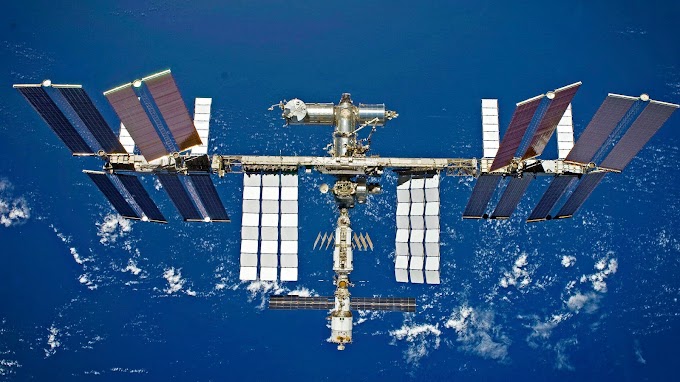In 2010, Americans could turn on their television and discover 24-hour news channels just as music videos, nature narratives, and unscripted TV dramas about everything from hoarders to form models. That is also movies accessible on request from link suppliers or television and video accessible online for streaming or downloading. A big part of U.S. families get a day-by-day newspaper, and the normal individual holds 1.9 magazine memberships (State of the Media, 2004) (Bilton, 2007).
A University of California, San Diego study guaranteed that U.S. families burned-through a sum of roughly 3.6 zettabytes of data in 2008—what could be compared to a 7-foot high pile of books covering the whole United States—a 350 percent expansion since 1980 (Ramsey, 2009).
Also read: How Have Social Media Changed Communication? Advancements In Communication
Americans are presented to media in taxis and transports, in homerooms and specialists' workplaces, on parkways, and in planes. We can start to arrange ourselves in the data cloud through parsing which jobs the media fills in the public eye, inspecting its set of experiences in the public eye, and taking a gander at the manner in which mechanical advancements have carried us to where we are today.
The evolution of the media has been full of concerns and issues. Allegations of psyche control, predisposition, and low quality have been tossed at the media consistently. However the development of correspondences innovation permits individuals today to discover more data more effectively than any past age. Broad communications can be print, radio, television, or Internet news. They can be neighborhood, public, or global. They can be expansive or restricted in their core interest. The decisions are colossal.
Media satisfies a few essential jobs in our general public. One clear job is amusement. Media can go about as a springboard for our minds, a wellspring of imagination, and a source for idealism. In the nineteenth century, Victorian perusers disappointed by the horridness of the Industrial Revolution ended up brought into incredible universes of pixies and other imaginary creatures.
In the principal decade of the 21st century, American television watchers could look in on a tangled Texas secondary school football crew in Friday Night Lights; the savagery tormented medication exchange Baltimore in The Wire; a 1960s-Manhattan promotion organization in Mad Men; or the last enduring band of people in a far off, hopeless future in Battlestar Galactica. Through bringing us accounts, everything being equal, media has the ability to remove us from ourselves.
Newspapers spread data about neighborhood occasions and exercises. The Stamp Tax of 1765 raised expenses for distributers, notwithstanding, driving a few newspapers to overlay under the expanded expense of paper. The nullification of the Stamp Tax in 1766 calmed worries for a brief time, yet editors and scholars before long started scrutinizing the right of the British to manage over the states.
Newspapers partook in the work to advise residents regarding British wrongdoings and prompt endeavors to revolt. Readership across the states expanded to almost 40,000 homes (among an all out populace of 2,000,000), and day by day papers jumped up in huge urban areas.
In spite of the fact that newspapers joined for a typical reason during the Revolutionary War, the divisions that happened during the Constitutional Convention and the United States' initial history made a change. The distribution of the Federalist Papers, just as the Anti-Federalist Papers, during the 1780s, moved the country into the gathering press time, in which partisanship and ideological group steadfastness overwhelmed the decision of publication content.
One explanation was cost. Memberships and promotions didn't completely take care of printing costs, and ideological groups stepped in to help squeezes that supported the gatherings and their strategies. Papers started printing party promulgation and messages, even openly assaulting political pioneers like George Washington.
Regardless of the threat of the press, Washington and a few different originators felt that opportunity of the press was significant for making an educated electorate. In fact, opportunity of the press is revered in the Bill of Rights in the principal change.
Media can likewise give data and training. Data can come in many structures, and it might now and again be hard to isolate from amusement. Today, newspapers and news-arranged television and radio projects make accessible stories from across the globe, permitting perusers or watchers in London to get to voices and videos from Baghdad, Tokyo, or Buenos Aires.
Books and magazines give a more top to bottom gander at a wide scope of subjects. The free online reference book Wikipedia has articles on points from official monikers to youngster wonders to tongue twisters in different dialects. The Massachusetts Institute of Technology (MIT) has posted free talk notes, tests, and sound and video accounts of classes on its OpenCourseWare site, permitting anybody with an Internet association admittance to elite educators.
Another helpful part of media is its capacity to go about as a public gathering for the conversation of significant issues. In newspapers or different periodicals, letters to the supervisor permit perusers to react to writers or to voice their feelings on the issues of the day. These letters were a significant piece of U.S. newspapers in any event, when the country was a British province, and they have filled in as a method for public talk from that point forward.
The Internet is an essentially just medium that permits every individual who can get online the capacity to state their viewpoints through, for instance, contributing to a blog or podcasting—however regardless of whether anybody will hear is another inquiry.
Additionally, media can be utilized to screen government, business, and different establishments. Upton Sinclair's 1906 novel The Jungle uncovered the hopeless conditions in the turn-of-the-century meatpacking industry; and in the mid 1970s, Washington Post correspondents Bob Woodward and Carl Bernstein revealed proof of the Watergate split in and resulting conceal, which in the long run prompted the renunciation of President Richard Nixon.
Be that as it may, purveyors of broad communications might be under obligation to specific plans in light of political inclination, promoting reserves, or philosophical predisposition, consequently compelling their capacity to go about as a guard dog.
Keep in mind, however, that not all media are made equivalent. While a few types of mass correspondence are more qualified to amusement, others bode well as a setting for spreading data. As far as print media, books are tough and ready to contain heaps of data, yet are generally sluggish and costly to deliver; conversely, newspapers are relatively less expensive and speedier to make, making them a superior vehicle for the fast turnover of day by day news.
Television gives limitlessly more visual data than radio and is more powerful than a static printed page; it can likewise be utilized to communicate real time occasions to a cross country crowd, as in the yearly State of the Union location given by the U.S. president. Nonetheless, it is additionally a single direction medium—that is, it takes into account next to no immediate individual to-individual correspondence.
Interestingly, the Internet energizes public conversation of issues and permits almost every individual who needs a voice to have one. Notwithstanding, the Internet is additionally generally unmoderated. Clients might need to swim through great many foolish remarks or deceived beginner conclusions to discover quality data.
The 1960s media scholar Marshall McLuhan made these thoughts one stride further, broadly authoring the saying "the medium is the message (McLuhan, 1964)." By this, McLuhan implied that each medium conveys data in an alternate manner and that content is in a general sense formed by the mode of transmission.
For instance, despite the fact that television news enjoys the benefit of offering video and live inclusion, making a story wake up more strikingly, it is additionally a quicker paced medium. That implies more stories get shrouded in less profundity.
A story told on television will most likely be flashier, less inside and out, and with less setting than a similar story shrouded in a month to month magazine; along these lines, individuals who get most of their news from television might have a specific perspective on the world molded not by the substance of what they observe but rather its medium.
Or on the other hand, as PC researcher Alan Kay put it, "Every medium has an extraordinary method of addressing thoughts that accentuate specific perspectives and de-stress others (Kay, 1994)." Kay was writing in 1994, when the Internet was simply progressing from a scholarly examination organization to an open public framework.








0 Comments
Thanks for your feedback.